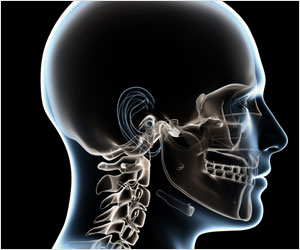Demystifying The Atlas Vertebra
May 7, 2013
If you’ve ever heard anyone talk about their body’s “atlas vertebra”, it may have left you scratching your head. But this important part of your cervical spine, also called C1, is critical to overall body function.
We asked Dr. Dean Burchenson, former Chiropractic Director of the Chiro One Wellness Center of Schaumburg West to explain just what the atlas vertebra does.
BW: What is the atlas vertebra?
Dr. Dean: The atlas vertebra is one of the bones in your neck and the very first vertebra in your spine. Despite the fact that it weighs only two ounces, the atlas supports the entire weight of your head, which—on average—weighs six to eight pounds! Those anatomists were clever when they named this all-important bone after the Greek Titan, who held up the earth on his shoulders. In much the same way, the atlas holds the sphere of your head on your body.

BW: If it is so important, what happens when the atlas doesn’t function properly?
Dr. Dean: The atlas is the foundation of your head and the center of balance of your body. When it is out of balance, the head and the rest of the spine can twist and shift. This causes issues with muscle imbalance and blood supply, not to mention interruptions in nerve messages. Because all of these processes are vital to the function and regeneration of cells, tissues and organs, the long-term result can include mild to severe headaches, lowered resistance to illness, organ dysfunction, less mobility and even disease.
BW: How does chiropractic care help keep the atlas high functioning?
Dr. Dean: Regular and appropriate adjustments keep the atlas in its proper position, reducing the subluxation effect on the brainstem and spinal cord. In fact, a 2007 study conducted at University of Chicago Hypertension Center demonstrated that atlas vertebra adjustments lowered blood pressure in patients as effectively as two blood-pressure medications.
BW: What else can we do to keep the atlas in good health?
Dr. Dean: Lifestyle definitely has an effect on the atlas. Proper diet, conscious movement and a positive attitude can all contribute to better health overall and to preventing subluxations of the atlas.

